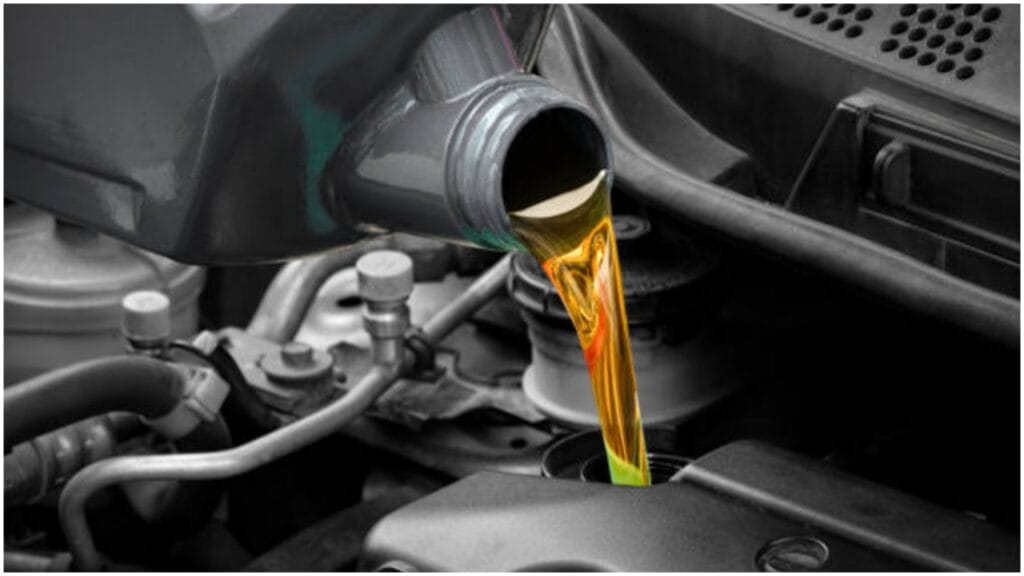Engine knock, also known as detonation, is a common issue in combustion engines. It occurs when fuel in the cylinders ignites prematurely or unevenly, causing a knocking or pinging sound. If left unaddressed, engine knock can lead to reduced performance, increased wear and tear on engine components, and even long-term damage.
Engine knock is primarily caused by low-quality fuel, incorrect timing, or high engine temperatures. Certain fuel additives can influence how an engine runs, and oil additives can help reduce or prevent knocking.
Role of Oil Additives in Reducing Engine Knock
Oil additives are chemical compounds added to motor oil to enhance its performance. While their primary purpose is lubricating engine components, some additives specifically address engine knocking.
These additives improve the overall quality of the oil and, in some cases, alter the combustion process. By increasing the oil’s ability to withstand high temperatures and pressure, oil additives can prevent knocking resulting from poor lubrication or overheating.
Types of Oil Additives for Engine Knock
Several types of oil additives are available that can help mitigate engine knock. One common type is the friction modifier. These additives reduce the amount of friction between moving engine parts, which can, in turn, reduce heat buildup and lower the chances of knocking.
Another important type of additive is detergent or dispersant, which helps to break down carbon deposits that can accumulate in the engine over time. Additionally, anti-wear additives can significantly reduce knocking.
These additives form protective layers on metal surfaces, ensuring that moving parts experience less friction. This can help reduce engine temperatures and prevent knock.
Additives specifically designed to raise the fuel’s octane rating directly impact the likelihood of detonation. Higher-octane fuels are less likely to ignite prematurely, making them a valuable tool in preventing engine knock.
How Oil Additives Work to Improve Combustion Efficiency
Introducing oil additives into an engine enhances the oil’s ability to lubricate, calm, and clean its internal components. This improved lubrication reduces friction between moving parts, lowering the risk of overheating.
Overheating is a major factor that can trigger engine knock, as it can cause the air-fuel mixture to ignite too early. Oil additives that clean the engine also help prevent carbon buildup around critical areas like the piston rings and cylinder walls.
These areas are especially susceptible to forming deposits that can disrupt the engine’s performance, causing knocking. Another critical role of oil additives is to improve the overall combustion process.
Additives can help ensure that the air-fuel mixture burns evenly and efficiently by operating the engine at optimal temperatures and preventing carbon buildup. This efficient burning reduces the chances of knocking, as the fuel will ignite at the proper time and in the appropriate manner.
Best Practices for Using Oil Additives
While oil additives can provide substantial benefits, using them correctly is important to achieve the best results. The first step is to use the right additive type for your specific engine.
Not all additives are suitable for all engines, so it is essential to follow the manufacturer’s recommendations and use the correct quantity of additives.
Overusing additives can sometimes lead to negative consequences, such as clogging the engine or altering the oil’s performance in unintended ways.
Before applying an oil additive, checking the quality and type of oil already in your engine is also a good idea. Some oil formulations may already contain additives that address knock, and adding more may not provide additional benefits.
Moreover, regularly changing the oil and filter is important, as dirty or old oil can exacerbate engine knocking by failing to provide adequate lubrication and cooling.
Engine Modifications to Complement Oil Additives

In some cases, oil additives alone may not eliminate engine knock. Modifications to the engine may be necessary for engines experiencing significant knocking due to worn-out components or improper combustion.
This could involve adjusting the timing, replacing worn-out spark plugs, or upgrading the fuel system to ensure a more efficient burn. In these cases, using oil additives in conjunction with these modifications can help to improve overall engine performance and reduce the chances of knock.
Upgrading the fuel to a higher-octane version can also complement the use of oil additives. Since higher-octane fuel is less prone to premature ignition, it can significantly reduce the likelihood of engine knock when used alongside the appropriate oil additives.
Monitoring Engine Health After Using Additives
Once oil additives have been introduced to the engine, it is essential to monitor its performance regularly. Listening for signs of knocking or pinging can help you gauge the additives’ effectiveness.
If knocking persists, further engine maintenance or exploration of additional additives might be necessary. Regular oil changes are essential to ensure the engine continues benefiting from the enhanced lubrication and cooling the additives provide.
FAQ’s
Best engine treatment for knocking?
Engine knocking can be frustrating and harmful to your vehicle. The best treatment is an octane booster or a quality fuel system cleaner. These products help reduce knocking by improving fuel combustion and removing carbon deposits.
Choose one that suits your engine type and follow the instructions carefully. Oil additives can also help. They reduce friction and provide better lubrication for the engine’s moving parts. This can quiet the knocking over time. Regular maintenance is key.
Ensure you’re using the correct fuel grade recommended by your manufacturer. Low-grade fuel can often cause knocking. Checking the spark plugs and ignition timing is also essential.
Worn or misfiring spark plugs can lead to engine noise. If the problem persists, it may indicate a deeper issue. Internal engine damage or timing problems might be the cause. In such cases, consult a mechanic for a thorough inspection.
Oil additive to stop valve tapping?
Valve tapping is often caused by insufficient lubrication or sludge buildup in your engine. The right oil additive can help reduce or stop this noise. Choose a high-quality additive designed to clean deposits and improve lubrication.
These additives free stuck lifters and ensure oil flows smoothly to all engine parts. Look for one compatible with your engine oil type, whether synthetic or conventional. Using the additive is simple.
Just pour it into the oil filler cap as directed. It blends with the oil and starts working immediately. Regular oil changes with the correct additive can also prevent future issues. If tapping continues, it might indicate worn-out lifters or more serious internal damage.
In such cases, a professional inspection is necessary. Don’t ignore valve-tapping sounds. Prolonged noise could lead to engine damage over time. The right oil additive is an affordable and effective first step to quieting your engine.
Keep your vehicle running smoothly with routine care. A quiet engine means everything is working as it should. Give it the care it needs, and it will reward you with better performance and longevity.
Conclusion:
Oil additives can prevent engine knock but should not be considered the sole solution. The most effective method involves using the proper oil additives in combination with regular maintenance, quality fuel, and adequate engine care.
Understanding your engine’s specific needs and using the appropriate additives is key to reducing knocking and improving overall performance. Oil additives, such as friction modifiers, detergents, anti-wear additives, or octane boosters, can help ensure smoother operation and longer engine life.

